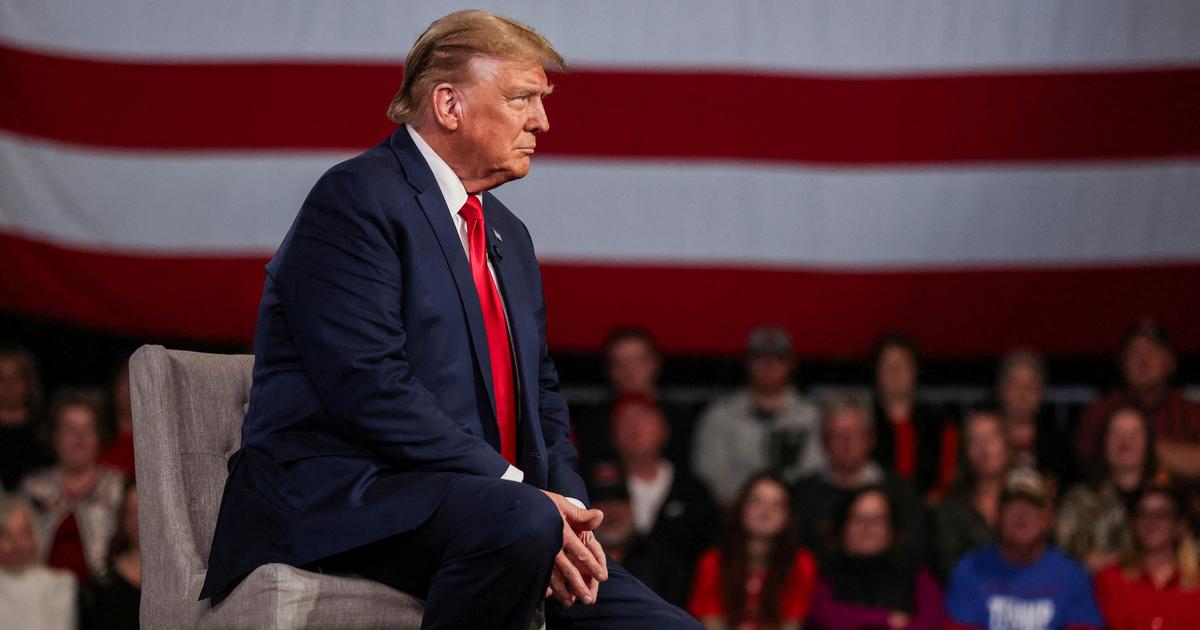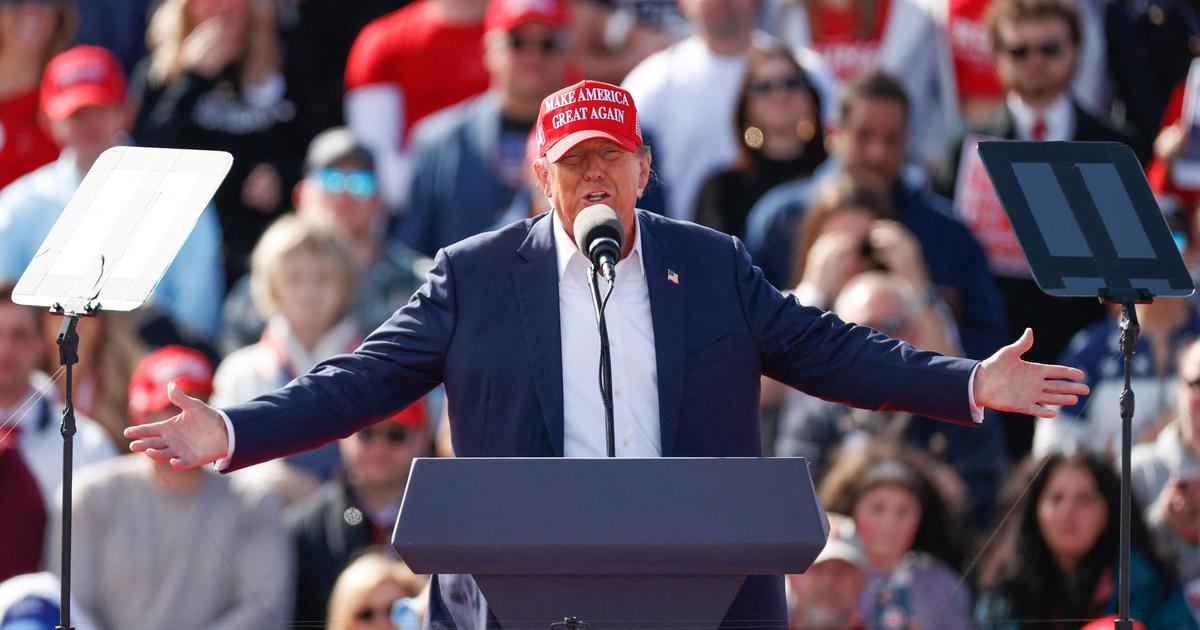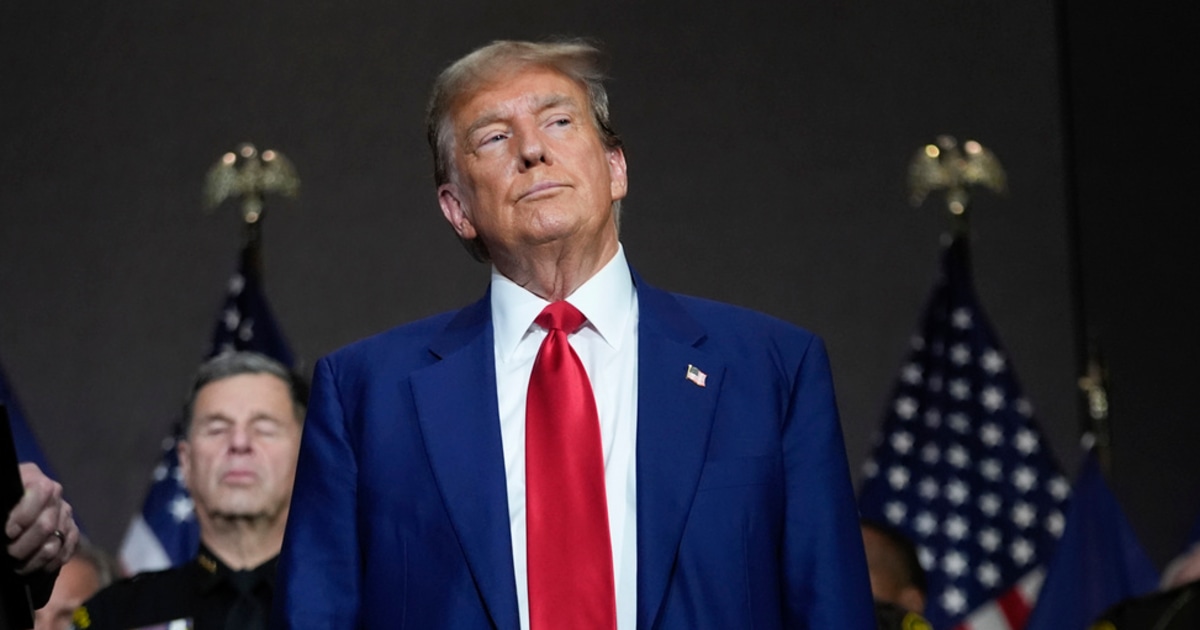Keys to understand new audience by January 6 3:11
(CNN) --
The House select committee investigating the uprising on Capitol Hill detailed Thursday how former President Donald Trump tried to pressure his vice president to join his plan to nullify the presidential election and how the refusal Mike Pence put his life in danger when rioters called for him to be hanged on January 6, 2021.
Testifying at Thursday's hearing were two witnesses who advised Pence that he had no authority to subvert the election, former Pence attorney Greg Jacob and retired Republican Justice J. Michael Luttig.
The commission reviewed how Trump's conservative lawyer John Eastman advanced a legal theory that Pence could unilaterally block election certification, a theory that was roundly rejected by Trump's White House lawyers and the Pence team, but which, however, was adopted by the former president.
Here are the key points from the commission's third hearing this month:
Trump was told Eastman's plan was illegal...but he tried anyway
There have been many revelations, but perhaps the most important is that Trump was repeatedly told that his plan to have Pence nullify the election on January 6 was illegal, but he tried it anyway.
advertising
According to witness testimony, Pence himself and the lawyer who came up with the plan directly advised Trump that it was unconstitutional and violated federal law.
Commission members argued that this shows Trump's corrupt intentions and could set the stage for a possible indictment.
In a recorded statement played Thursday, Pence's then-chief of staff, Marc Short, said Pence warned Trump "many times" that he did not have the legal or constitutional authority to overturn the results while he was presiding over the joint session of Congress. on January 6 to count the electoral votes.
Are there possibilities of a new assault on the Capitol?
2:17
Even Eastman, who helped devise the plan and pitched it to Trump, admitted to Trump that the plan would require Pence to break federal law, according to an excerpt from a statement by Jacob, Pence's top legal adviser, which was reproduced at Thursday's hearing.
Lawyers from across the political spectrum agree that Eastman's plan was absurd.
Luttig, the former federal judge who advised Pence during the transition, testified at Thursday's hearing that he would have placed his body "across the road" before allowing Pence to illegally nullify the election.
The panel linked the pressure campaign on Mike Pence with the violence of January 6
The commission tried to connect Trump's pressure campaign against Pence to the Jan. 6 violence by weaving together testimony from Pence aides, public statements by Trump, and comments from rioters on Capitol Hill.
Some of the most compelling evidence came from the agitators themselves.
Many of them had heard Trump's rallies claiming — inaccurately — that the election was rigged and that Pence had the power to do something about it as he presided over Electoral College certification.
As the insurrection was underway, they cited Trump's comments about Pence.
And many of them saw, in real time, Trump's tweet criticizing Pence as the Capitol was under attack, saying that Pence "didn't have the courage to do what should have been done."
The point of highlighting this on Thursday was to lay the blame for the violence at Trump's feet.
And right after the attack, many top Republicans agreed with that conclusion.
But over the past year and a half, many Republicans have shied away from blaming Trump, and the commission hopes to change that.
Former Trump White House lawyer Eric Herschmann told the commission that Eastman told him he was willing to accept violence to nullify the 2020 election. The panel played a video of Herschmann's statement where he described a conversation with Eastman about his claims that the vice president could nullify elections in Congress.
Herschmann warned Eastman that his strategy, if implemented, "was going to cause riots in the streets."
"And he said words like 'in the history of our country there has been violence to protect democracy or to protect the republic,'" Herschmann recounted.
The danger for Pence on January 6 was real as the mob came within 40 feet of him
The commission stressed that Pence was in real danger on January 6, and the panel argued that Trump was to blame.
The mob got within 40 feet of Pence, a little closer than a first down in football.
The agitators threatened him on his behalf and were enraged that he didn't overturn the election, because they believed Trump's lie that Pence could unilaterally overturn Joe Biden's victory in the Electoral College.
"Vice President Pence was a focus of the violent attack," said Rep. Pete Aguilar, a California Democrat and commission member.
Capitol hearings demonstrate solidity of democracy, says analyst 3:26
Pence's team was evacuated and the commission showed new footage of the then-vice president holed up in a Capitol basement bunker as the violence unfolded.
Pence and his wife, Karen Pence, reacted "with frustration" to the fact that Trump never called to check on them, according to Jacob's testimony.
Pence and Trump's relationship had soured deeply in the run-up to the Jan. 6 session of Congress, as Pence made it clear that he would not follow through on the plan to overturn election results that Trump was pushing.
Trump then began to turn against his vice president in his public statements, drawing the ire of his supporters.
For his part, while working from a secure location on Capitol Hill, Pence reached out to congressional leaders, the acting defense secretary and others "to check on their safety and address the growing crisis," Aguilar said Thursday. .
Eastman would not take no for an answer on nullifying the election
The hearing underscored how Eastman had pushed time and again for Pence to try to overturn the election, despite facing strong resistance from White House lawyers and Pence's team.
Even after the riots on Capitol Hill, Eastman was still trying to block the election result, the commission revealed.
Eastman's actions mirrored in many ways those of Trump, who also refused to accept Pence's rejection and lashed out at his vice president in his speech and on Twitter.
The commission played video deposition testimony in which White House officials explained how they thought Eastman's theory was "crazy" before Jan. 6 and told him so.
Jacob, Pence's top adviser, described meetings he had with Eastman on January 4 and 5, including the time Eastman directly asked him to have Pence turn down voters.
"I concluded by saying, 'John, in light of everything we've discussed, can't we both agree that this is a terrible idea?'" Jacob said.
"And he was hesitant to say yes. But he clearly said, 'Well, yes, I see we're not going to be able to convince you to do it.' And that's how the meeting ended."
But on the night of January 6—after rioters had stormed the Capitol and forced the vice president and his team to flee—Eastman tried to take advantage of the certification delay by arguing that there had been a minor violation of the Voter Recount Act and that Pence had to delay it 10 days as a consequence.
In a phone call with Herschmann on January 7, Eastman was still looking at legal options to appeal the Georgia election results.
Herschmann told the commission in a statement: "I said, 'Are you crazy? Because I only want to hear two words coming out of your mouth from now on: orderly transition.'"
Eastman emailed Giuliani about possible presidential pardon after Jan. 6
Eastman emailed Rudy Giuliani a few days after Jan. 6, 2021, and asked to be placed on a list of potential recipients of a presidential pardon, the commission revealed during Thursday's hearing.
"I have decided that it should be on the pardon list if it is still being worked on," said Eastman's email to Giuliani, a former Trump attorney.
Eastman ultimately did not receive a pardon and refused to answer commission questions about his role in efforts to nullify the 2020 election, repeatedly appealing to the Fifth Amendment during his statement.
The commission argued during Thursday's hearing that Eastman's request for a pardon, and his decision to repeatedly rely on the Fifth Amendment when questioned earlier by the panel, indicates that Eastman knew his actions were potentially criminal.
CNN previously reported that Giuliani and other Trump aides had floated the idea of preemptive pardons in the weeks leading up to Jan. 6, but the Capitol riot had complicated their desire to pardon himself, his children and his personal attorney.
At the time, several of Trump's closest advisers also urged him not to grant clemency to anyone involved in the Jan. 6 attack, despite Trump's initial stance that those involved had done nothing wrong.
The star of Thursday's hearing was not in the room
One person notably absent Thursday was the star of the hearing: the former vice president.
The commission cast Pence as the hero, arguing that American democracy would have fallen into a state of chaos if he had succumbed to Trump's pressure campaign.
But as the commission touted Pence's commitment to the Constitution and his courage on January 6, it was impossible to ignore the fact that the former vice president was not in the room.
Instead, the commission relied on live testimony from Pence's two former advisers who appeared to speak on his behalf.
Earlier this year, the committee's chairman, Democratic Rep. Bennie Thompson of Mississippi, had suggested they seek Pence's testimony.
However, the possibility of Pence appearing before the commission, especially in public, has always been viewed as remote, to say the least.
Asked Wednesday if the commission was still interested in hearing from Pence, commission aides told reporters that the investigation was ongoing and therefore they could not provide details on any particular witness engagement. .
"There is nothing new to share on this other than we are still looking for facts and if there is more to share we will share it in the future," said one of the aides.
The fact that two of Pence's former advisers appeared Thursday, and that Short testified on camera behind closed doors, indicates that Pence was not actively seeking to block those around him from sharing information with the commission on his behalf.
Luttig turned parts of the hearing into a lengthy constitutional seminar
Greg Jacob and J. Michael Luttig
The January 6 hearings have been high-speed events to date, with emotional and violent videos interspersed with deposition testimony and minimal live testimony.
On Thursday, Luttig, a retired judge, had other ideas.
Luttig gave long, meandering answers with a hesitant approach that dragged on as he delved into issues like the history of the Electoral Recount Law.
Luttig's comments were basically the opposite of the kind of television hearings the commission has said it is holding to try to connect with the American public about the importance of the Jan. 6 attack on Capitol Hill and democracy.
At the same time, the points Luttig made — about how the legal schemes Eastman and Trump pushed were unfounded and Trump was told the same thing before Jan. 6 — were essential to the commission's argument trying to connect Trump's efforts. to annul the election with violence.
But the manner of his speech got in the way of his message.
Messages from Trump allies on assault on Capitol Hill 6:40
American democracy is at stake
The investigation is about the 2020 election, but commission members took pains to frame the conversation on future threats to democracy, with an eye toward 2024.
And it's not just the Democrats who run the commission who are sounding the alarm about Trump's increasingly undemocratic behavior and what it means for future elections.
Jacob said Trump's plan was "antithetical to everything in our democracy" and would have plunged the nation into an unprecedented constitutional crisis.
Luttig said Trump represents a "clear and present danger to American democracy."
The conservative Republican said he had come to this conclusion because Trump and his allies continue to lie about the 2020 election, endorse candidates who promote these lies, and show no signs of backing down.
The commission says it will present legislative proposals to clarify old election laws, close loopholes that Trump and Eastman tried to exploit and safeguard the transition of power.
There is bipartisan interest in passing some of these proposals, but it is not yet clear if there is enough support to send any bills to Biden's desk.
With the midterm elections in the offing, time may be running out.

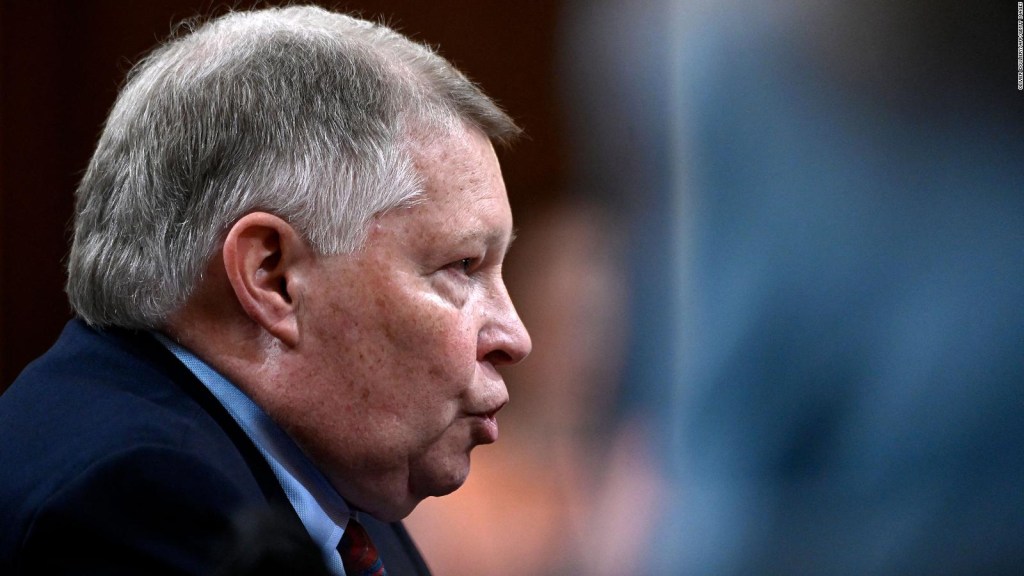
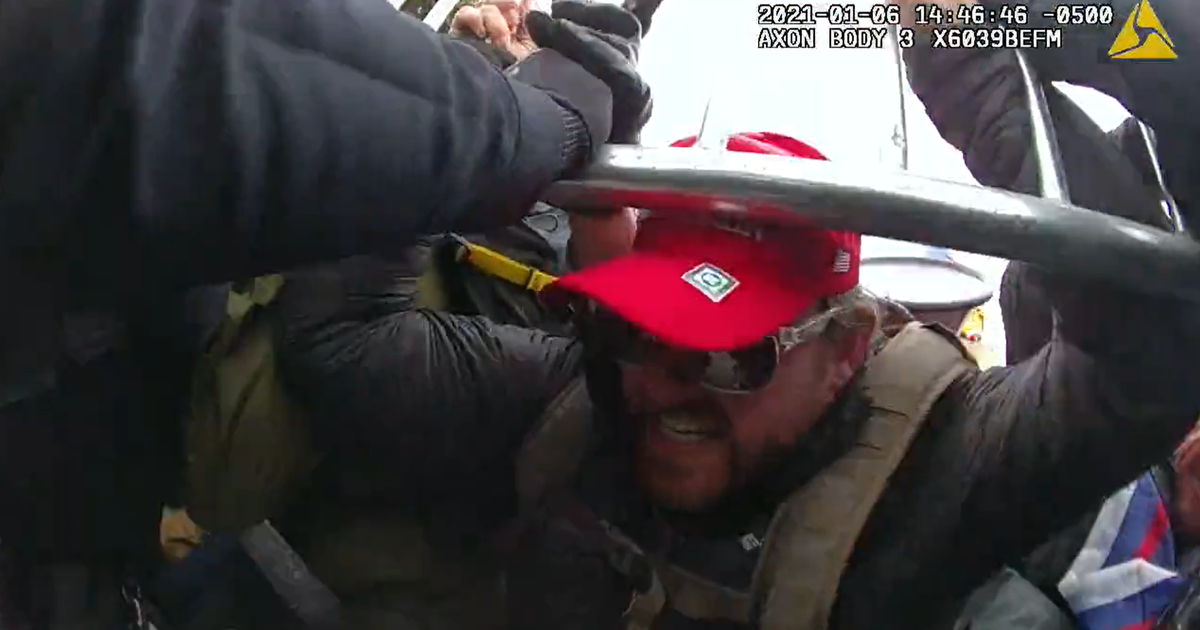
/cloudfront-eu-central-1.images.arcpublishing.com/prisa/UAEV4PQKWFSS6AZSG2N7HWOKZI.jpg)

